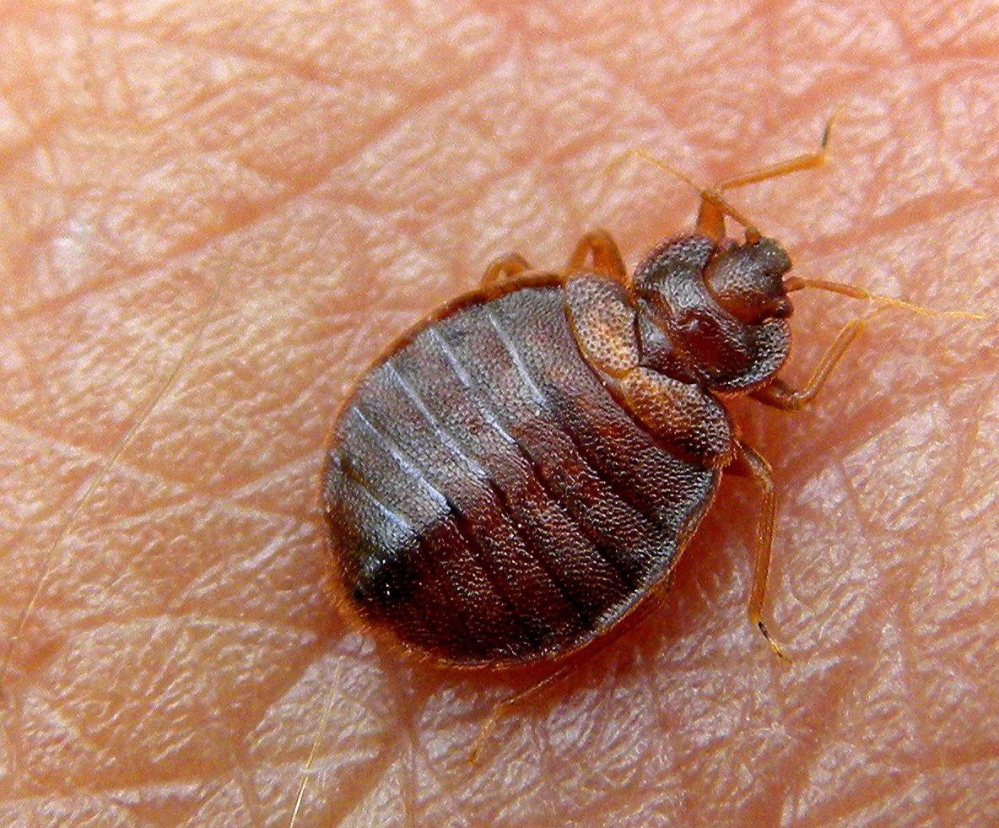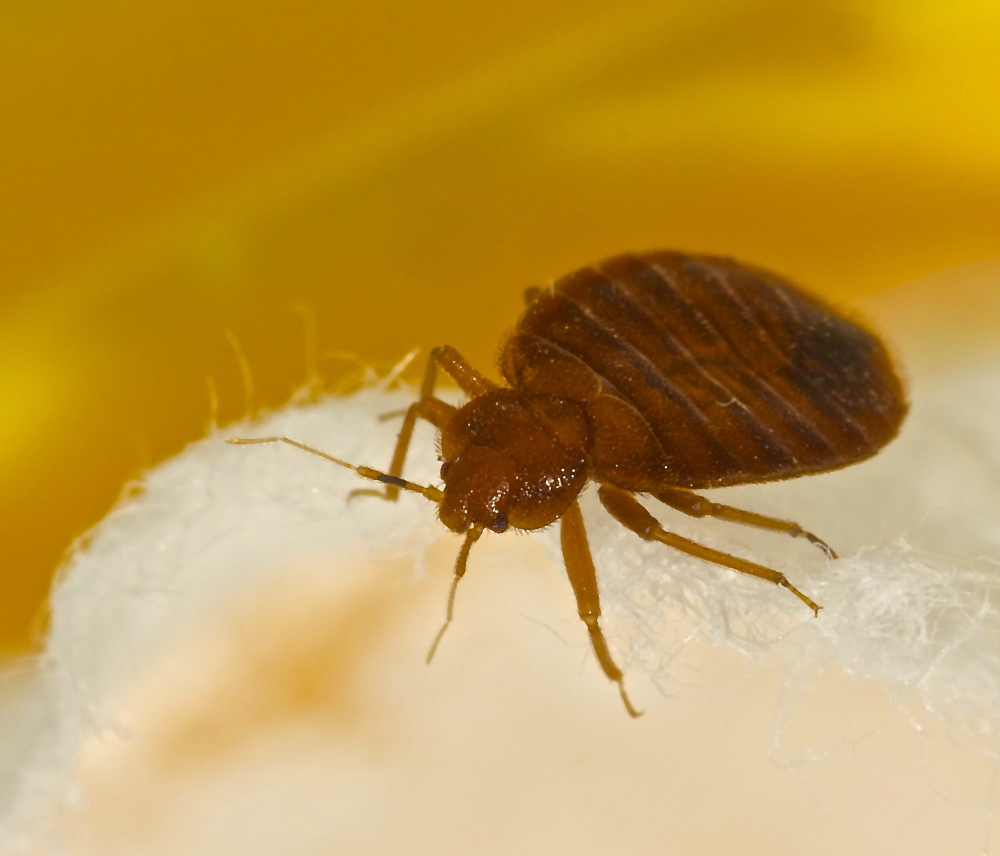As we write this, Halloween is just around the corner. As you read it, it’s history. Still, ’tis the season for the heebie-jeebies, and we are ready to oblige. So what’s that? A bed bug.
In Maine, they are a “serious problem,” says Jim Dill, a Pest Management Specialist with the University of Maine Cooperative Extension. “Down in southern Maine, I am sure I could make one phone call and take you to a place with them.” Thanks for the kind offer, Jim. But no thanks. You understand.
Bed bugs, like stink bugs, belong to the hemiptera order, which means, among other things, that “they have piercing, sucking mouths,” Dill said. Other bugs in the order suck sap from plants. “Bed bugs do it on us.” He knows this not only because of his training and education but also from personal experience. He used to keep a colony of bed bugs at his office. To feed them, he would place them on the back of his hand and let them suck his blood. Unsurprisingly, Dill couldn’t find anyone else willing to feed them (not even graduate students). Nor did his activities endear him to co-workers. “The staff was a little antsy that one of these days, one was going to scurry away and go home with someone.”
If voters Tuesday approve an $8 million bond to pay for a bio-secure laboratory at the University of Maine, scientists will have a place to research bedbugs (and ticks and mosquitoes) without such anxieties. (The lab is “critical to Maine’s 8,000-plus existing farms and to the hundreds of new farmers coming to Maine,” according to the Maine Organic Gardeners and Farmers Association.)
Meanwhile, if you are very unlucky and find you have an infestation yet you don’t want to spray your home with nasty pesticides, you can try the heat treatment. It works like this: A pest control company sets up giant heaters into your home and blasts them to 135 degrees. “At about 122 degrees, all stages of the bug are killed, from egg through adult,” Dill said. The method, he added, “takes several hours and is quite expensive.”
Since Source is a section about sustainability, you may be interested to know how bed bugs sustain themselves. Human blood, yes. Also, “They have an interesting mating ritual. The males actually rip open the females to impregnate them,” Dill said. “It’s called traumatic insemination.” (We’ll say.) One theory is that infestations spread because the females, aggravated, move to avoid the aggressive males before laying their eggs, say from your sofa into your bed. — PEGGY GRODINSKY
Send questions/comments to the editors.




Success. Please wait for the page to reload. If the page does not reload within 5 seconds, please refresh the page.
Enter your email and password to access comments.
Hi, to comment on stories you must . This profile is in addition to your subscription and website login.
Already have a commenting profile? .
Invalid username/password.
Please check your email to confirm and complete your registration.
Only subscribers are eligible to post comments. Please subscribe or login first for digital access. Here’s why.
Use the form below to reset your password. When you've submitted your account email, we will send an email with a reset code.